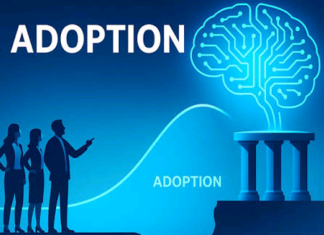When you purchase through links on our site, we may earn an affiliate commission. This doesn’t affect our editorial independence.
Nigeria’s telecom operators report strong data revenue growth. But internet subscriptions declined despite rising usage. Interestingly, the contradiction reveals the Nigeria data crisis and growing exclusion.
Moreover, internet users dropped from 141.6 million in January to 140.6 million by June. That one million loss occurred even as current users consumed more data. This suggests affordability, not usage, is the main barrier now.
In addition, MTN Nigeria leads with 76.5 million internet subscribers as of June 2025. Airtel Nigeria follows with 49.4 million, Globacom with 13.7 million, and 9mobile with 1.08 million. Despite this user base, net subscriber growth stalled dramatically.
In Case You Missed It:
In the same vein, smartphone affordability challenges contribute to digital exclusion. Some handsets with basic features now retail between ₦200,000 and ₦220,000. Mid-range models like Samsung A-series exceed ₦400,000. High-end phones, including the iPhone 15 Pro Max, cost over ₦2.3 million.
Additionally, device prices jumped roughly 25 per cent in six months. Factors include naira devaluation, inflation, and global supply disruption. Used iPhones now sell for ₦130,000–₦100,000,000, pricing out lower-income users. Interestingly, smartphone sales dropped 7 per cent between January and June 2025. Beyond the Nigeria data crisis, this is another challenge to internet usage in the country.
Nigeria Data Crisis Worsened Digital Exclusion
In January, the NCC yessed a 50 per cent data price hike. Cost per gigabyte increased from ₦287.50 to ₦431.25 almost overnight. This event would make subscribers reevaluate or reduce their usage plans immediately.
Following this development, internet subscriber growth stalled sharply by February. Notably, nearly one million users exited the active subscription lineup. The rebound in March was modest and short-lived. Therefore, by June, the onboarding of new internet users remained slow.
Moving forward, consumer behaviour shifted rapidly toward data rationing due to the Nigeria Data Crisis. Users restricted data to essential tasks only. Existing smartphone owners increased their average data consumption. Still, pricing pressures stopped new users from joining.
Policy disruptions further slowed user growth in June. NIMC suspended NIN verification during platform upgrades. This freeze halted new SIM activations on all networks. New internet subscriptions remained blocked while verification systems changed.
MTN added 3.3 million active data subscribers by June 2025. Similarly, Airtel’s active data user base reached 29.3 million users. Revenue growth soared, MTN’s data revenue jumped 69.2 per cent year-on-year. Yet, subscriber base expansion lagged behind usage growth, owing to Nigeria data crisis.
Smartphone penetration rose among existing users. MTN’s penetration increased from 58.3 per cent in December 2024 to 62.6 per cent in June 2025. That reflects approximately 53 million smartphone owners on the MTN network. Airtel’s rate sits at 51.4 per cent, translating to 27.5 million users.
Final Note
The data consumption surge masks deeper adoption issues. Revenue gains come mainly from increased usage per user. Meanwhile, structural barriers prevent new users from coming online. This imbalance exposes the heart of the Nigeria data crisis.
If affordability is unaddressed, digital inequality will worsen. The Nigeria data crisis will cause low-income Nigerians to remain excluded from the online economy. TechPolyp suggests that government and regulatory strategies must address affordability and access gaps. Without proactive policy shifts, the divide will continue expanding.
Addressing the Nigeria data crisis requires multi-sector action now. Telecommunications owners, regulators, and device manufacturers must collaborate swiftly. TechPolyp suggests that data subsidies, cheaper devices, and transparent regulations could help reverse the decline. Otherwise, Nigeria risks leaving millions offline indefinitely.







